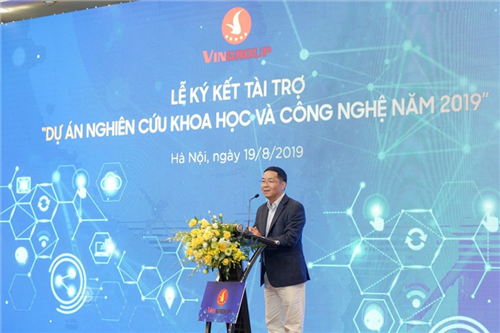Towards a Big Urban Data Facility
A Case Study on Computational Investigation of the Connectivity, Resilience and Demand of the Bus Network in Ho Chi Minh City.
With its actual population of 13 million people, Ho Chi Minh City (HCMC) is among 50 “mega-cities” of the world. However, the public transportation network of the city is inadequate with its bus systems being the only type of public transportation available as the metro system is still under construction. The current demand for the buses is significantly low, meeting below 10% of total transportation needs; and this rate is rapidly decreasing. This happens because of one important reason: inefficient bus management and operation. This results in busses missing their stops, running off-schedule or late, or having overlapping routes.
The first “big data” research project by FSPPM is then initiated to optimize management and operational capabilities of the public bus system. The specific objectives of this research are as followings:
- To develop the Big Urban Data Facility (BUDF) to securely save sensitive data and allow effective cooperation among different users of big urban data.
- To develop a website displaying big data for scientists to interact, explore and analyze big urban data.
- To develop analytical model to evaluate the spatial and temporal connectivity, and comprehensiveness of the city’s bus network.
- To develop a simulation of the bus network in order to evaluate potential solutions to improve the system’s recovery time in case of disruption.
- To develope a sample model to quantitatively measure the transportation demand using anonymous data from cell phone signal.
BUDF is the first national data set to store and provide processing capacity for big urban data sets. Interactive visualization tools are engineered to allow for multiple users to simultaneously access, explore and analyze big urban data of HCMC in near real-time basis. BUDF and these visualization tools are not only helpful for the project itself, but also useful resources for other research projects in urban sciences requiring access to big urban data.
As part of the project, different models to analyze the dynamics of public transportation networks are developed to objectively and comprehensively evaluate the performance of the city bus services. This is the first study that attemps to evaluate the operational reliability of the bus services using past GPS data. These simulations will build and recreate real scenarios for the bus network to evaluate the efficiency of different solutions, which are utilized to accurately and economically improve the stability and punctuality of the service. Specifically, the models analyzing anonymous data collected from mobile phone signals to quantify (temporal and spatial) transportation demand are the pioneering research works not only in Vietnam but in the world. These tool sets can be expanded to integrate other public transport modes (e.g. metro system) operating within the city.

